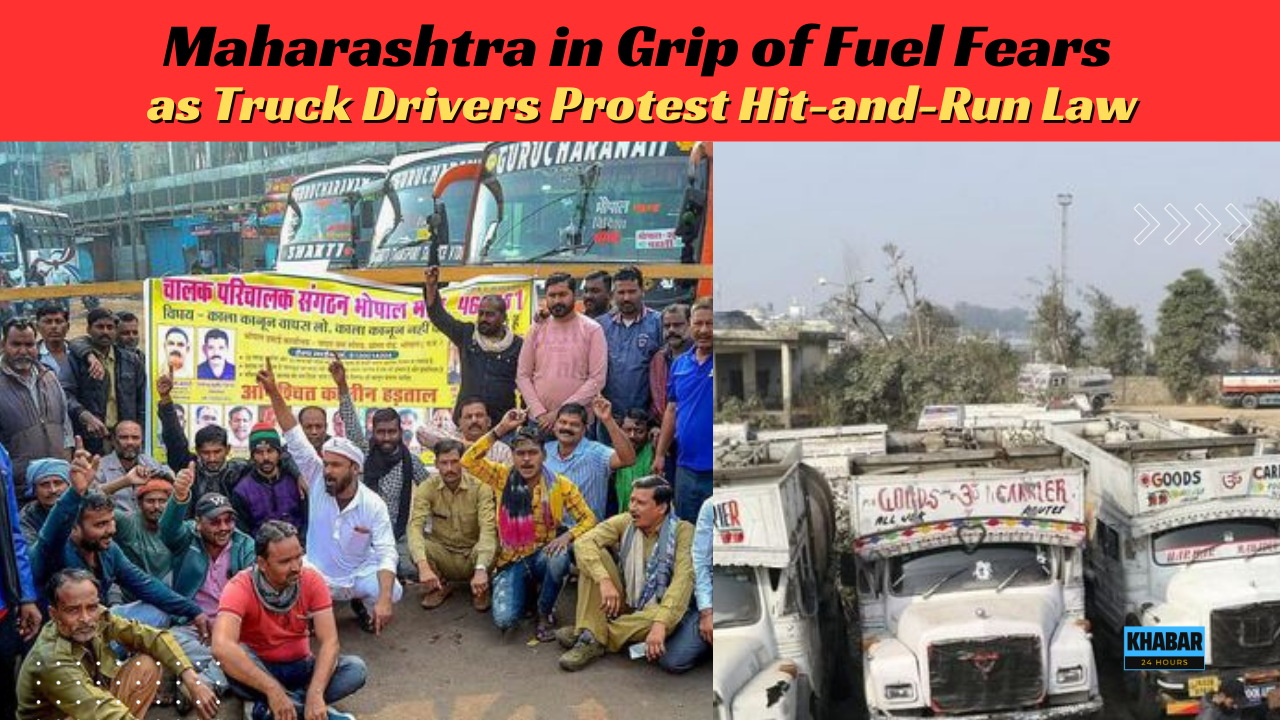Nagpur, Maharashtra – Panic gripped residents of Nagpur on Monday as long queues snaked around fuel pumps, triggered by fears of a fuel shortage amidst ongoing protests by truck drivers. The protests erupted across Maharashtra in opposition to a new provision in the amended penal code that imposes stricter penalties for hit-and-run accidents.
Fuel Shortage Looms as Supply Lines Disrupted: Truck drivers, who form the backbone of India’s transportation system, staged “rasta roko” (roadblock) protests, disrupting the movement of essential goods, including fuel tankers. This has raised concerns of potential fuel shortages in several pockets of the state, with reports of some petrol pumps in Chhatrapati Sambhajinagar district already running dry.
Hit-and-Run Law at the Heart of the Matter: The crux of the truck drivers’ grievances lies in a recent amendment to the Indian Penal Code (IPC). The new law stipulates harsher punishments, including up to 10 years’ imprisonment, for drivers who flee accident scenes without reporting the incident. Truck drivers argue that this provision unfairly targets them, potentially leading to false accusations and harassment even in non-negligent accidents.
Impact Beyond Fuel: Supply Chains Threatened: The ongoing protests are not just disrupting fuel supply but also threatening to throw a wrench in the entire supply chain of essential goods. With trucks off the roads, the flow of agricultural produce, consumer goods, and manufacturing materials could be significantly impacted, potentially leading to price hikes and economic disruption.
Dialogue and Solution Key: To avert a deeper crisis, urgent dialogue between the Maharashtra government and the protesting truck drivers is crucial. Finding a common ground that ensures road safety while addressing the genuine concerns of the trucking community is paramount. A balanced approach that prioritizes both accountability and fairness is needed to navigate this complex situation.

